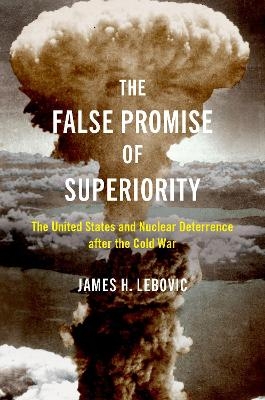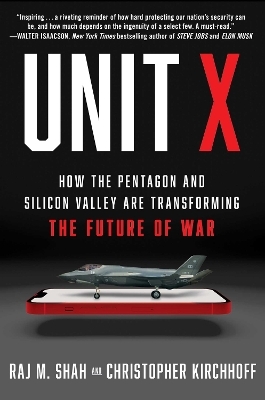
The False Promise of Superiority
Oxford University Press Inc (Verlag)
978-0-19-768087-2 (ISBN)
During the Cold War, American policymakers sought nuclear advantages to offset an alleged Soviet edge. Policymakers hoped that US nuclear capabilities would safeguard deterrence, when backed perhaps by a set of coercive tactics. But policymakers also hedged their bets with plans to fight a nuclear war to their advantage should deterrence fail. In The False Promise of Superiority, James H. Lebovic argues that the US approach was fraught with peril and remains so today. He contends that the United States can neither simply impose its will on nuclear adversaries nor safeguard deterrence using these same coercive tactics without risking severe, counterproductive effects. As Lebovic shows, the current faith in US nuclear superiority could produce the disastrous consequences that US weapons and tactics are meant to avoid. This book concludes that US interests are best served when policymakers resist the temptation to use, or prepare to use, nuclear weapons first or to brandish nuclear weapons for coercive effect.
James H. Lebovic is Professor of Political Science and International Affairs at The George Washington University. He has published widely on defense policy, deterrence strategy, arms control, military budgets and procurement, foreign aid, democracy and human rights, international organizations, international conflict and cooperation, and military intervention. He previously authored six books including Planning to Fail: The US War in Vietnam, Iraq, and Afghanistan (Oxford, 2019), Flawed Logics: Strategic Nuclear Arms Control from Truman to Obama (2013), The Limits of US Military Capability: Lessons from Vietnam and Iraq (2010), and Deterring International Terrorism and Rogue States: US National Security Policy after 9/11 ( 2007). From 2015-2017, he chaired the International Security Studies Section of the International Studies Association.
Concepts and Arguments
Chapter 1: The United States and Nuclear Deterrence after the Cold War
SECTION I: Assessing Nuclear Capability: The History and Implications of Alleged Nuclear Advantages
Chapter 2: The Cold War Nuclear Force Balance: The Challenge and Promise of Asymmetry
Chapter 3: Nuclear "Superiority" after the Cold War
SECTION II: Coercive Tactics: Boosting Credibility to Signal a US Willingness to Act on the US "Nuclear Advantage"
Chapter 4: Commitment
Chapter 5: Risk Manipulation
Chapter 6: Resolve and Reputation
SECTION III: Case Studies
Chapter 7: When Tactics Consume Strategy: Decision Making in the Cuban Missile Crisis
Chapter 8: When Red Lines Consume Debate: Thwarting Iran's Nuclear Ambitions Conclusions
Chapter 9: The Case for Nuclear Superiority: Assessing What We Know (and Do Not Know) about Nuclear Deterrence
Notes
Index
| Erscheinungsdatum | 12.01.2023 |
|---|---|
| Zusatzinfo | 9 b/w line drawings; 2 tables |
| Verlagsort | New York |
| Sprache | englisch |
| Maße | 236 x 154 mm |
| Gewicht | 422 g |
| Themenwelt | Natur / Technik ► Fahrzeuge / Flugzeuge / Schiffe ► Militärfahrzeuge / -flugzeuge / -schiffe |
| Sozialwissenschaften ► Politik / Verwaltung ► Europäische / Internationale Politik | |
| Sozialwissenschaften ► Politik / Verwaltung ► Staat / Verwaltung | |
| ISBN-10 | 0-19-768087-9 / 0197680879 |
| ISBN-13 | 978-0-19-768087-2 / 9780197680872 |
| Zustand | Neuware |
| Informationen gemäß Produktsicherheitsverordnung (GPSR) | |
| Haben Sie eine Frage zum Produkt? |
aus dem Bereich


